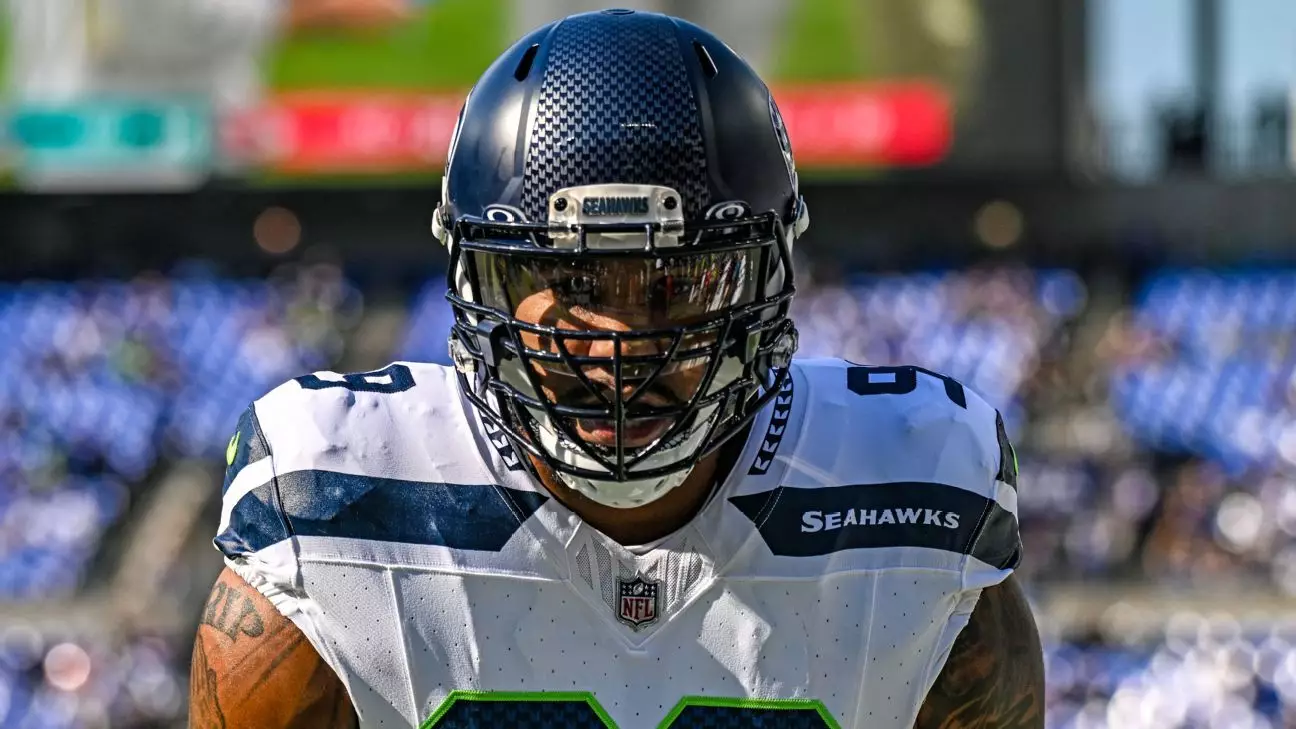The Pro Bowl, an annual showcase aimed at celebrating the NFL’s elite players, often stirs various emotions among athletes—especially when it comes to the intricacies of selection and acknowledgment. The latest example of this complexity emerged in Renton, Washington, where Seattle Seahawks cornerback Devon Witherspoon earned a well-deserved spot on the Pro Bowl roster for the second consecutive year. However, the same recognition eluded veteran defensive tackle Leonard Williams, leading to an emotional reaction that underlines the mixed feelings around the tribute.
Devon Witherspoon’s success story is remarkable, especially considering he was thrown into the league as the fifth overall draft pick in 2023. His journey to two consecutive Pro Bowl selections highlights his skills on the field and the trust placed in him by voters despite lacking a standout statistical record. With no interceptions and only one sack, Witherspoon’s selection could raise eyebrows among those who rely heavily on traditional metrics to judge player performance. Nonetheless, he acknowledged the honor and appreciation from voters, emphasizing the collective effort that goes into team dynamics.
What sets Witherspoon apart is not just his on-field play but also his capacity to motivate himself and others around him. His resolute belief in the value of teamwork suggests a player who prioritizes the greater good over individual accolades. Reflecting on his selection, he candidly expressed disbelief over Williams’ snub, calling for a reconsideration of how talent is recognized within the league and fueling ongoing discussions about the perception of players based on their teams and statistics.
Williams’ Frustration and Legacy Concerns
Conversely, Leonard Williams’ disappointment illustrates the emotional turmoil that can accompany such assessments of talent. Despite posting impressive numbers—9.0 sacks, 15 tackles for loss, and 26 quarterback hits—Williams’ exclusion ignited a frustration that was hard to dismiss. His talent speaks for itself, yet the absence of a Pro Bowl selection could overshadow his contributions, especially when considering how these honors impact a player’s legacy. The narrative around a player’s career is often shaped by accolades, and Williams’ plight raises concerns about the parameters used for these evaluations.
Williams reflected candidly on his experiences and reiterated that it’s not merely about individual triumphs but how those victories contribute to a broader narrative that includes team success and personal legacy. He shared sentiments that, while disappointed, he still respected the players selected. This kind of sportsmanship signifies a mature approach, even if it comes laced with frustration and disappointment about recognition.
The discourse didn’t end with Williams’ comments. Seattle quarterback Geno Smith added fuel to the fire, discussing what he perceives as possible biases against certain players based on their market visibility or team dynamics. His assertion serves as an important reminder of the external factors influencing perceptions in a sport often dominated by statistics. Though Williams previously played in a major media market with the New York Giants, the ongoing narrative that players in Chicago or New York might automatically garner more attention than those in Seattle remains a recurring theme in discussions about player recognition.
Furthermore, the pressure to acknowledge standout performances equitably, regardless of market size or media focus, becomes all the more relevant as athletes like Williams question the fidelity of the voting system. It’s essential to understand that the Pro Bowl serves as both a celebration of talent and a pivotal moment in establishing a player’s legacy beyond their playing years.
Though Williams has been named an alternate—alleviating some of the sting from being initially overlooked—the label brings its own set of frustrations. Being recognized as an alternate often feels more like a consolation prize, especially in light of a season filled with remarkable contributions, including his incredible 92-yard interception return for a touchdown. Williams’ sense of underappreciation highlights a larger issue within the league: the need to reevaluate how players are assessed and recognized.
As controversies surrounding Pro Bowl selections continue to persist, it is crucial for the NFL and its voting bodies to consider the insights of players like Witherspoon and Williams when reforming their approach to honor the athletes who have undeniably made an impact on the game. The merging of statistical reviews, voter outreach, and player sentiments could lead to a more democratic and meaningful recognition process in the years to come. Ultimately, the goal remains clear: celebrating exceptional talent should transcend numerical evaluations alone, making space for a holistic view of contributions within the sport.


Leave a Reply